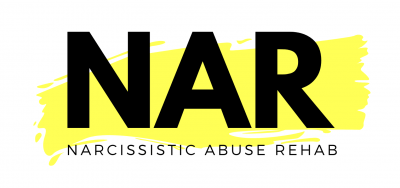A recent report exposes an alarming pattern of systemic failures in femicide prevention by law enforcement in the UK. The study was commissioned by Killed Women, a support network for families of women killed by men.
The You Were Told study shows numerous missed opportunities and inadequate responses by law enforcement. In response, family members united, staging a vigil outside the House of Parliament in London. They urged the government to take action and close the dangerous gaps.
Ipsos conducted the report, surveying 115 bereaved families who lost a female loved one to a current or former partner or family member. Two-thirds of respondents view the femicides as preventable, while only 4% considered them inevitable. The results underscore the urgent need for a more proactive approach to domestic violence cases.
How Inadequate Domestic Violence Training Enables Femicide
According to The Guardian, one example of a preventable femicide was the murder of Ms. Gemma Marjoram. She was murdered by her former partner after years of proven coercive control. Law enforcement failed to identify the high risk nature of Ms. Marjoram’s case. They failed to spot the grave danger she was in despite her former partner’s repeated arrests for abusive behavior. For this reason, her family view Ms. Majoram’s murder as a preventable femicide.
Ms. Linda Smith, the mother of the victim, criticized the 23-year prison sentence her daughter’s murder is serving. In her view, the penalty is inadequate in comparison to sentences for stranger homicides.
Ms. Nour Norris, also present at the vigil, was also critical of the gaps in domestic violence prevention. She disclosed that her niece, Ms. Raneem Oudeh, 22, had filed no less than 14 police reports. Nevertheless, she was met by a stunningly inept response from the West Midlands Police. The police neglected to investigate Ms. Oudeh’s reports of stalking and death threats. Furthermore, they failed to arrest the perpetrator. Consequently, Ms. Oudeh was harassed and tormented for months with impunity. She was murdered with her mother, Ms. Khaola Saleem, in August 2018.
Ms. Norris told Sky News:
“We do blame the police because the proof of the inquest has shown very clearly that the system is failing miserably. The death of my sister and my niece could have been prevented.”
Bystander Awareness Can Help Save Lives
The You Were Told report also shows that nearly four-fifths of respondents were aware of abuse prior to the femicides. This indicates another missed opportunities to intervene. Ms. Anna Ryder, the director of Killed Women, underscores the need for change. She is calling for policies that focus on prevention and intervention to stop crimes of gender based violence. Ms. Ryder believes the justice system should show no tolerance for femicide.
90% of surveyed bereaved families are dissatisfied with the length of the prison sentences. Many think they are too short to be prohibitive. Moreover, they fail to reflect the brutality of femicide or its impact on families. In the United Kingdom, a man kills a woman every three days.
Ms. Laura Farris, the minister for victims and safeguarding, says the government is taking action. It is conducting the first-ever review of domestic homicide sentencing. She also pointed to new laws against stalking and coercive control. For example, Clare’s Law gives women the right to know if their partner has a record of domestic violence.
Ultimately, effective femicide prevention depends on enhancing domestic violence training for law enforcement, optimizing information sharing between agencies, and greater bystander awareness.
Confidential support is available 24/7/365 to anyone experiencing abuse.
In the USA call 1-800-799-7233 or log on to thehotline.org.
In the UK call 0808 2000 247 or log on to nationaldahelpline.org.uk.
NAR’s Journalistic Standards and Practices
About NAR • Report Typo or Error






